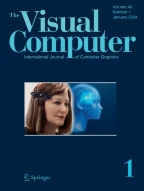Abstract
The traditional “Engineer's Notebook” is a volume of bound paper pages. This archaic system is still the medium of choice for mechanical engineers during the conceptual phase of design. In making this choice, designers are taking aperformer's view, choosing freedom and agility in the initial making of drawings over processing power. The paper notebook allows the designer to quickly write and draw whatever she or he desires. During conceptualization, a designer is functioning as a performer, like a musician. And also like a musician, her instrument must be agile or the performance will be cramped and ideas lost. But the agility of Computer Aided Design systems has been neglected in favor ofprocessing power — the ability to do something with the drawings in addition to just making them. Described in this paper isvmacs, a prototypeElectronic Design Notebook which combines the capabilities of performing medium and processing medium.
Similar content being viewed by others
Explore related subjects
Discover the latest articles, news and stories from top researchers in related subjects.References
Brown DR (1988) The application of declarative programm to engineering analysis in the domain of rigid-body mechanics PhD, Dissertation, Mechanical Engineering Dept, Stanford Univ. (June 1988)
Engelbart DC (1962) Augmenting human intellect: a conceptual framework. SRI International, Menlo Park, CA (October 1962)
Engelbart DC (1985) Remark made in keynote address at SIG CHI85, San Francisco, CA (April 1985)
English WK, Engelbark DC, Berman, ML (1967) “Display-selection techniques for text manipulation” IEEE Trans, Hum Fact Electron, vol. IEEE-8, no 1, (March 1967)
Lakin F (1980a) A structure from manipulation for text-graphic objects. Proc SIGGRAPH '80, Seattle, Washington (July 1980)
Lakin F (1980b) Diagramming a project on the electric blackboard. Video tape for SIGGRAPH '80 (July 1980)
Lakin F (1980c) Computing with text-graphic forms. Proc LISP Conf Stanford Univ (August 1980)
Lakin F (1989) Measuring text graphic activity. Proc Graphics Interface '83, Edmonton, Abarta (May 1983)
Lakin F (1984) Visual communication expert. Public Broadcast television segment on Computer Chronicles KCSM, as part of show on Artificial Intelligene (March 1984)
Lakin F (1986) Spatial parsing for visual languages. In: Chang S-K, Ichikawa T, Ligomenies PA (eds) Visual Languages. Plenum Press, NY
Lakin F (1987) Visual grammars for visual languages. Proc AAAI-87, Conf Am Assoc Artificies Intelligence. Seattle, Washington (July 1987)
Lakin F (1988) A performing rhenium for working group graphics. Proc Conf computer-supported corperative Work. Austin, Texas (December 1986). Reprinted in: Greif, I (ed) Computer-Supported Cooperative Work: A Book of Readings. Morgan Kaufman Publ, Palo Alto
Lakin F (1989) Visual languages for cooperation. NSF Workshop: Technology and cooperative Work, Tucson, Arizona (February 1988). Reprinted in: Egido C, Galegher J, Kraut R (eds) Intellectual Teamwork: social and technical Bases of collaborative Work. Lawrence Erlbaum Publ (in press)
Shieber SM (1985) The design of a computer language for linguistic information. Proc 22nd Ann meeting Assoc Computat Linguistics, Univ Chicago, Chicago, IL (July 1985)
Sibbet D (1976) Introduction to group graphics. The Corospondent, CORO Foundation Northern California Public Affairs Quarterly
Sutherland IE (1963) Sketchpad: a man-machine graphical communication system. Proc spring joint comput conf
Wambaugh J (1988)vmacs use. Figures from Spring and Summer
Author information
Authors and Affiliations
Rights and permissions
About this article
Cite this article
Lakin, F., Wambaugh, J., Leifer, L. et al. The electronic design notebook: Performing medium and processing medium. The Visual Computer 5, 214–226 (1989). https://doi.org/10.1007/BF02153751
Received:
Revised:
Issue Date:
DOI: https://doi.org/10.1007/BF02153751
